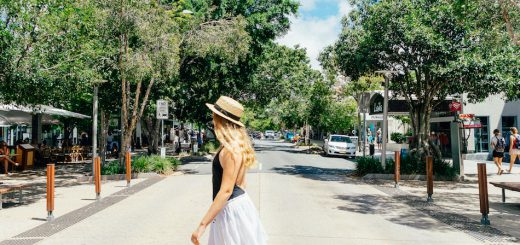Unwanted holiday rentals – What is the law?

Short term rental laws and regulations
Short-term holiday rentals can be a nightmare if they’re happening next door. Read on for what you can do about it.
Having your neighbour’s place on Airbnb may not cause you any grief, or it may lead to out-of-control parties, crime, squatters or pop-up brothels. If you live in an apartment building, having strangers constantly coming and going, maybe even copying keys and swipe cards, is a security worry for residents and makes it harder to build a sense of community.
So what can you do about it if it happens to you?
The laws and regulations in Australia are unfortunately often vague or inconsistent, and usually set by local councils. Of course if there is a wild party or crime, you can call the police. But in most states, you won’t be able to stop the owner from renting it out for another party. Queensland has laws that allow councils to legally block short-term letting in “party houses”, but this is only after repeated parties. Victoria lets a strata claim costs resulting from parties by guests from the owner, and block a listing after 3 troublesome parties. But this isn’t much comfort for the residents in these buildings.
In most states, your best chance is to report the owner to the local council. For areas zoned “residential” it’s usually against local council regulations to rent out your entire place, because it changes the building’s use to “commercial” (a serviced apartment) if it’s rented for less than 30 days at a time. If the owner is renting out rooms instead, they may need a license to run as a Bed & Breakfast (with accompanying hygiene, etc regulations). Here’s an example of owners in Sydney being caught out.
Rules for this vary between councils, so check your local bylaws. For example, Waverly Council (NSW) bans short-term letting completely without a development application, but Gosford Council (NSW) explicitly allows it. Still, you need to rely on overworked councils to enforce these rules, which may not happen quickly.
There’s nothing to stop an owner requesting council for permission for either from their council. If they have it, you need to resort to other tactics. A heavy-handed – but effective – one is to report their activity to the ATO. If it’s an investment property being put up for short-term rent, they may not be declaring all their income on their tax return. If they live in the property, renting out the apartment or rooms in it exposes the owner to capital gains tax implications that they won’t be happy with.
South Australia and Tasmania have statewide regulations governing short-term rentals, that overrule local councils’ bylaws. In SA short-term rentals are allowed without any development consent for a change of use, and in Tasmania they’re allowed under the following conditions:
- Up to 4 rooms in a residence when owner present
- Up to six weeks of entire residence if owner’s primary residence
- Investment properties if registered with local government
If you’re in an apartment building, you can also look to your strata to help. Many strata have bylaws which state that owner must follow local bylaws. If an apartment is being used for as a serviced apartment and this isn’t allowed in that area by council, the strata can compel the owner to stop. But stratas in NSW and Victoria so far haven’t been successful in enforcing bylaws that oppose the rights of the unit owner to rent the unit out how they like, but it’s still a legal grey area, and some lawyers believe these stratas were legally in the right.
Stratas also have bylaws governing the behaviour of residents and guests. If an Airbnb guest is unruly, these can be used to get them out. But it’s a solution that needs to be applied each time.
In NSW there is one more trick stratas can try. Owners must notify the strata of any change of tenancy within 30 days, or risk a $550 fine. This is a widely ignored rule and has yet to be tested in court however.
Want to keep an eye on short-term rentals in your building? BnbGuard is Australia’s solution to the risks of unwanted subletting – problems like squatters, crime, uninsured property damage and wild parties. Contact us for a chat.





